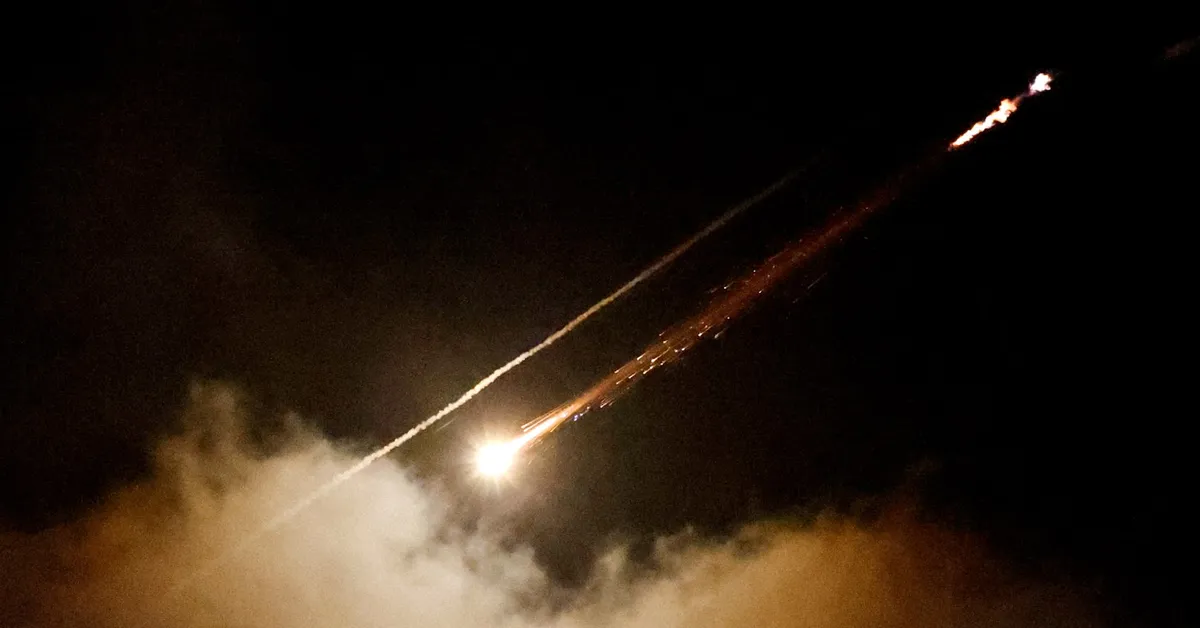
DUBAI, June 16 - In a significant diplomatic move, Tehran has reached out to Qatar, Saudi Arabia, and Oman, urging them to persuade U.S. President Donald Trump to leverage his influence over Israel for an immediate ceasefire with Iran. This request is tied to Iran's willingness to show flexibility in ongoing nuclear negotiations, as reported by two Iranian sources and three additional regional contacts on Monday.
In response to the escalating tensions between Israel and Iran, Gulf leaders and their senior diplomats have been actively engaging in discussions over the weekend. They have been in contact with each other, as well as with Tehran and Washington, to mitigate the risk of a broader conflict. This situation represents the most significant confrontation between these longstanding adversaries.
One Iranian source indicated that Iran is prepared to adopt a more flexible stance in nuclear negotiations if a ceasefire is achieved. The Gulf states, including Qatar, Oman, and Saudi Arabia, are deeply concerned that the situation could spiral out of control, as conveyed by a Gulf source close to government officials.
Tehran has reportedly reached out to Qatar and Oman to act as mediators in the resumption of nuclear talks. However, they have made it clear that any negotiations would only commence after a ceasefire with Israel is established. An official involved in Iran's communications with the Gulf states revealed that Iran will not engage in discussions while under attack, stating that serious negotiations will follow their response to Israeli strikes.
As of now, Iran's foreign ministry has not responded to requests for comment from Reuters. Additionally, Qatar's foreign ministry, Oman's ministry of information, Saudi Arabia's international media office, the White House, and the U.S. State Department have also been unresponsive to inquiries.
In light of the ongoing conflict, Israeli Prime Minister Benjamin Netanyahu's office has not commented on the situation. Israeli National Security Adviser Tzachi Hanegbi, when asked about the possibility of a diplomatic solution to the current military campaign, stated on Army Radio that it is "a little early for that." He emphasized that one does not initiate a war with the intent of concluding it just days later.
Israel initiated a surprise attack on Iran on Friday morning, which reportedly decimated the upper echelons of Iran's military command and inflicted damage on its nuclear facilities. Israeli officials assert that the campaign's objective is to eliminate Iran's capacity to develop a nuclear weapon, while Iran maintains that its nuclear program is strictly civilian.
Oman is currently drafting a ceasefire proposal aimed at restarting discussions between the U.S. and Iran regarding Iran's nuclear program, according to another regional source. This comes after the cancellation of a planned sixth round of U.S.-Iran talks in Muscat, which was set to occur just a day after Israel's surprise military actions.
The Omani proposal reportedly urges the U.S. to accept Iran's suspension of all nuclear enrichment for a period of one to three years, contingent upon firm inspections by the International Atomic Energy Agency (IAEA). The goal of this proposal is to foster trust, allowing Iran to enrich uranium up to a purity of 3.67% and enabling participation from an international uranium consortium in Iran's nuclear program.
One Iranian source noted that Tehran might consider accepting a one-year suspension of nuclear enrichment, complete access for IAEA inspectors, and various confidence-building measures, provided that Israel endorses an immediate ceasefire. In return, Iran expects the U.S. to acknowledge its right to a peaceful nuclear program and to lift existing sanctions.
Furthermore, Tehran has solicited Turkey's assistance in appealing to Trump for support. Russian President Vladimir Putin has also indicated his willingness to communicate with both Trump and Israeli Prime Minister Netanyahu, although it remains unclear if Russia will assume a more active diplomatic role in this crisis.
Despite Iran's threats of severe retaliation for Israeli attacks, the Iranian sources indicate that Tehran has also communicated its readiness to cease its strikes if Israel halts its military actions. This demonstrates Iran's serious intent to pursue a ceasefire, driven by fears that the conflict could escalate across the region, with potential repercussions lasting for decades.
As the situation continues to unfold, diplomatic efforts are critical in preventing a broader conflict and addressing the pressing issues surrounding Iran's nuclear program.